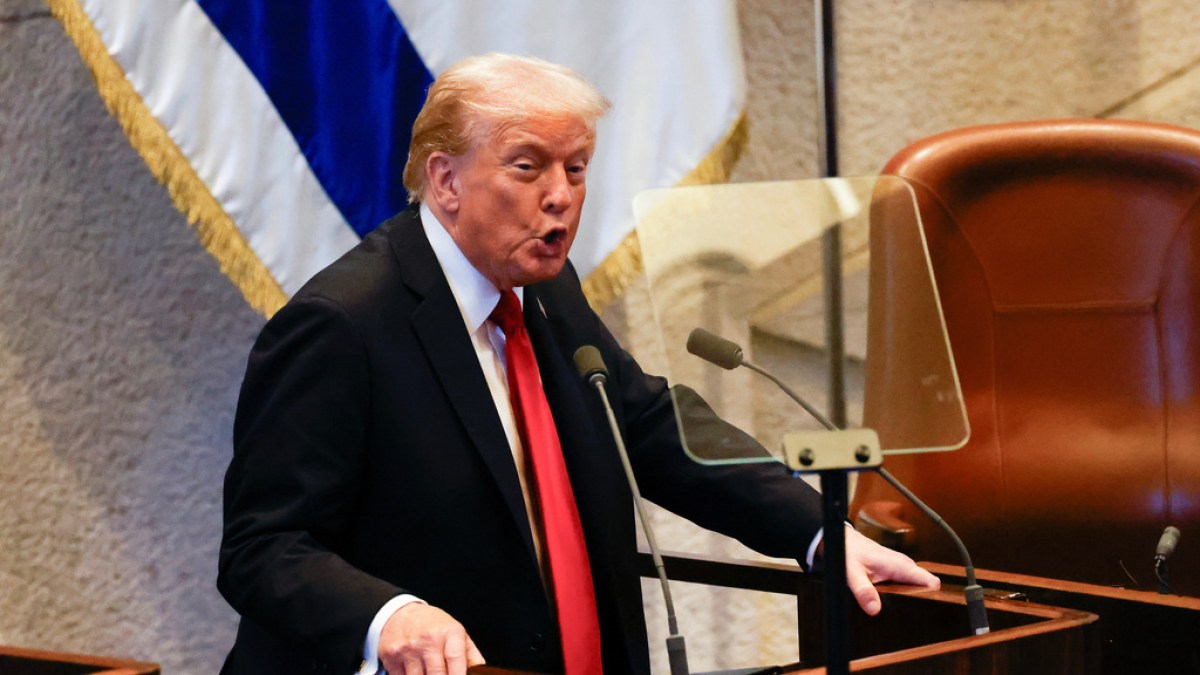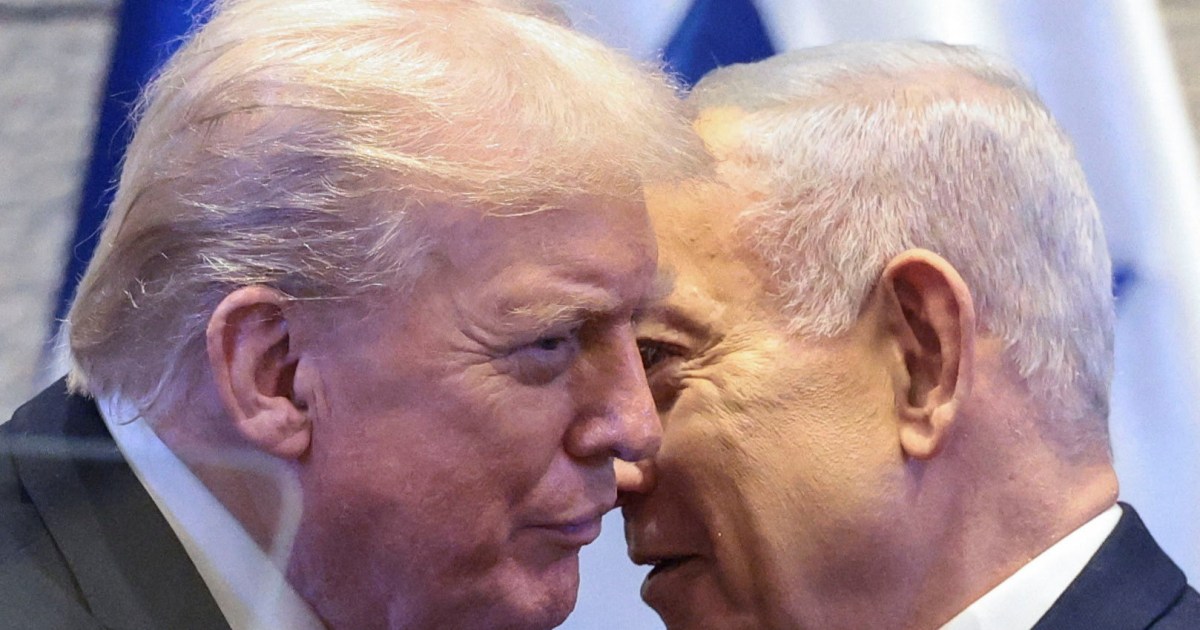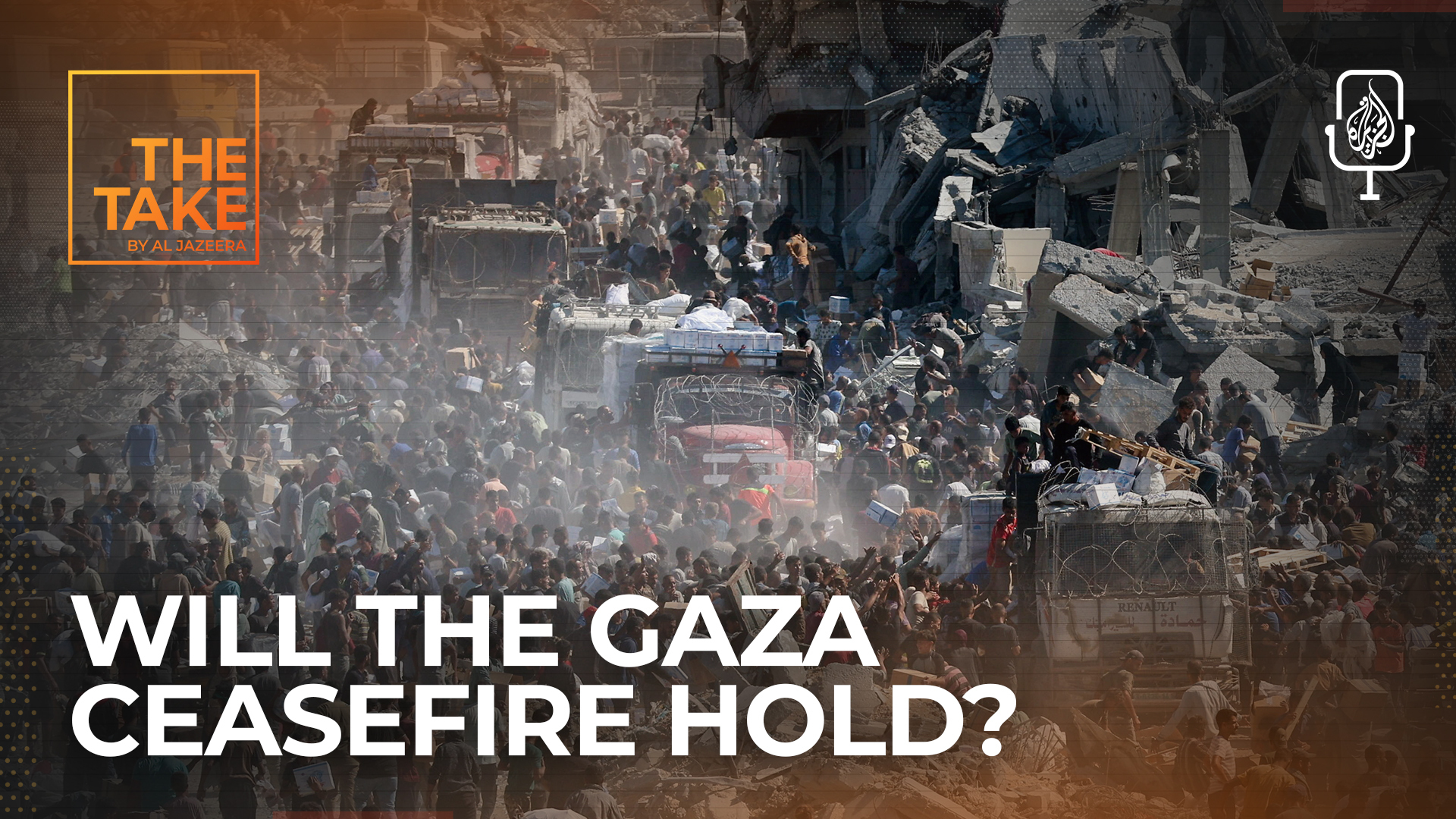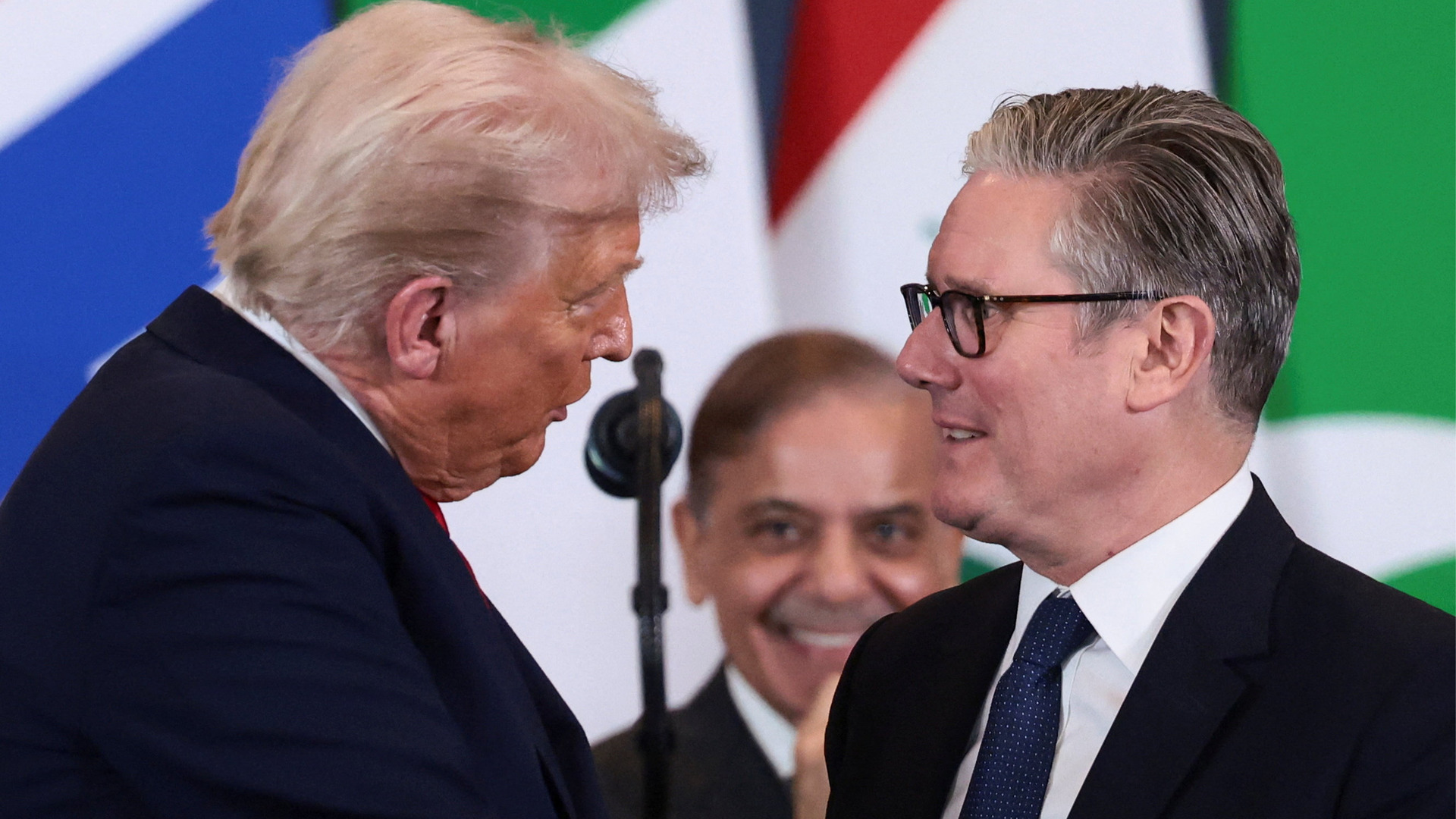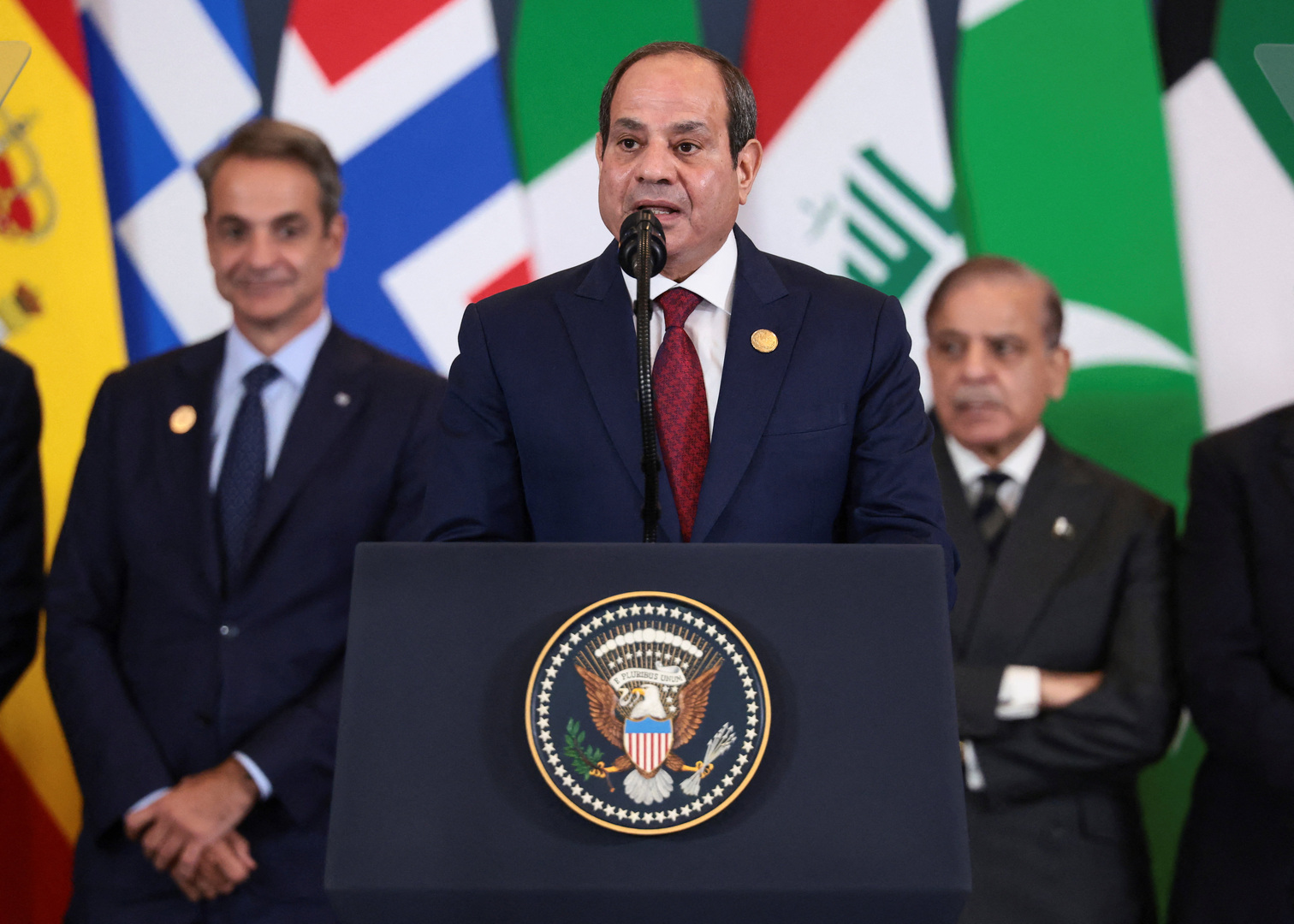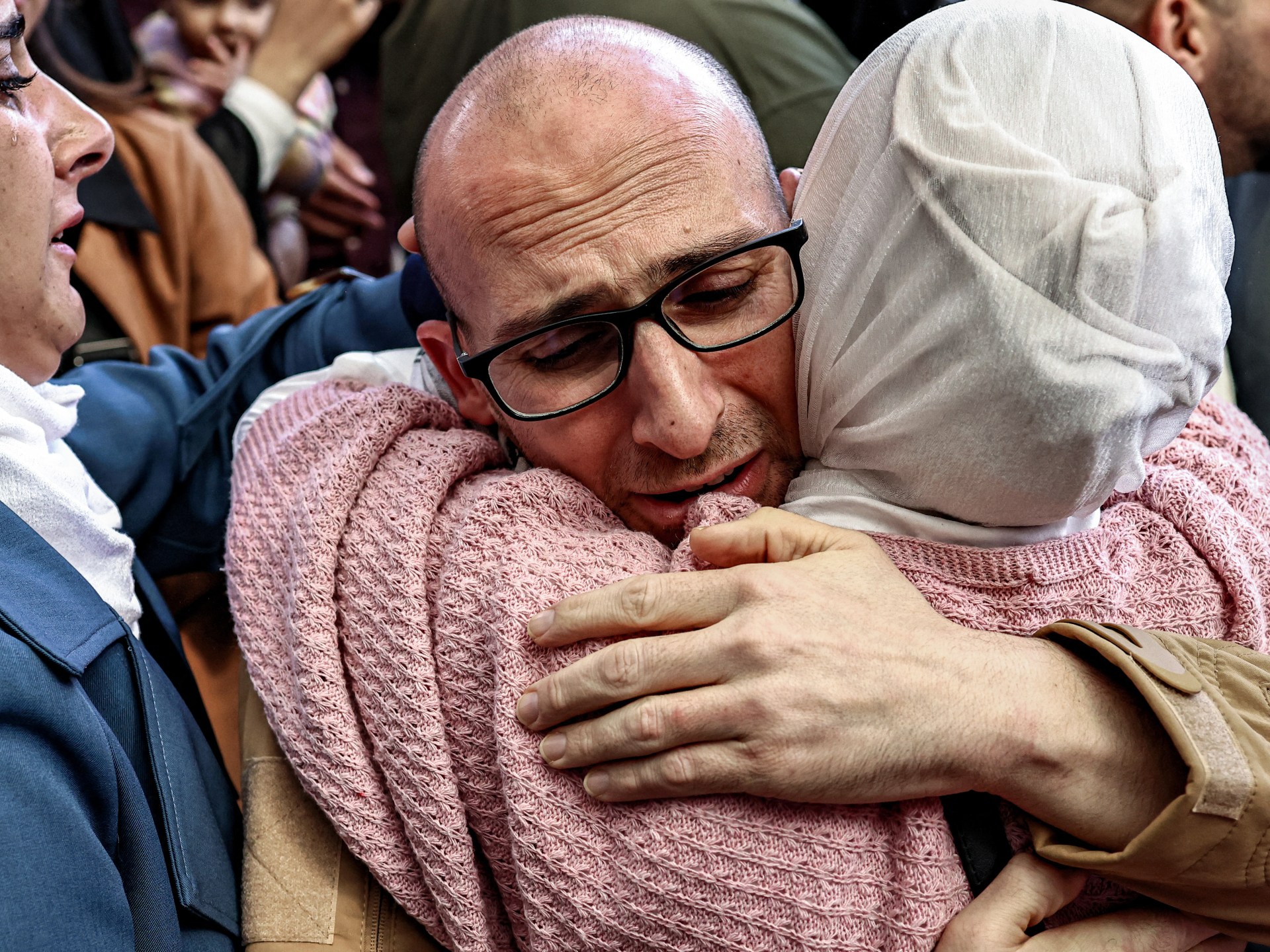During a trip to the Middle East marking the end of Israel’s war on Gaza, United States President Donald Trump turned to another source of strife in the region: the tensions between Tehran and Washington.
In remarks to the Israeli Knesset on Monday, Trump, who took the unprecedented step of bombing Iranian nuclear facilities earlier this year amid a 12-day war between Israel and Iran, offered a “hand of friendship”.
Recommended Stories
list of 3 itemsend of list
“We are ready when you are, and it will be the best decision that Iran has ever made, and it’s going to happen,” Trump said of a possible agreement with Tehran.
“The hand of friendship and cooperation is open. I’m telling you, they [Iran] want to make a deal. It would be great if we could make a deal.”
But despite the dovish rhetoric, the Trump administration has continued to take a hard line against Iran, and analysts say that a path towards better relations between the two countries remains filled with obstacles.
Trita Parsi, executive vice president of the Quincy Institute for Responsible Statecraft, a US-based think tank, said that the Israeli and US attacks in June, which came as nuclear negotiations between Washington and Tehran were ongoing, undermined advocacy for diplomacy in Iran.
“There’s a perception that the US is using diplomacy to lull Iran into a false sense of security,” Parsi said.
‘Iran is open to a deal’
Iran itself has not closed the door to diplomacy, but its leaders have not rushed to renew talks with the US, either.
“If we receive a reasonable, balanced, and fair proposal from the Americans for negotiations, we will certainly consider it,” Iranian Minister of Foreign Affairs Abbas Araghchi said during a television interview on Saturday.
Iran had rejected an Egyptian invitation to attend a summit on the war in Gaza in Sharm el-Sheikh on Monday, citing US attacks and sanctions.
Talks over Iran’s nuclear programme have not resumed since the Trump administration’s bombing of Iranian nuclear facilities. Israel started the war in June, days before the US and Iranian officials were set for another round of talks.
The US, which during Trump’s first term in 2018 withdrew from a previous deal limiting Iran’s nuclear programme, has also insisted that any new agreement include a total ban on Iranian uranium enrichment.
That demand goes beyond the original deal, known as the Joint Comprehensive Plan of Action (JCPOA), which only curbed Iran’s uranium enrichment programme under a strict international inspection system.
Iran has depicted that new demand as a denial of its rights as a sovereign country, noting that the Treaty on the Non-Proliferation of Nuclear Weapons (NPT) does not prohibit uranium enrichment.
The impasse over enrichment has become a sticking point in negotiations.
“Iran is open to a deal,” Parsi told Al Jazeera. “But regardless of Trump’s positive tone and kind words, what he is looking for is for Iran to capitulate. As long as he insists on zero enrichment, I don’t think he will get a deal.”
Israel’s war with Iran, which included Israel’s assassination of high-level military figures and civilian nuclear scientists, as well as air strikes that killed hundreds of people, has also increased scepticism about the prospects of a lasting deal with the US.
In a speech to the Knesset on Monday, Israeli Prime Minister Benjamin Netanyahu lauded the US decision to bomb Iran during the war as a “biblical miracle”.
Since the beginning of the war in Gaza, Israel has struck a series of blows against Iran and allied groups, such as Hezbollah, across the Middle East, leaving it significantly weakened and giving the US little incentive to make concessions on uranium enrichment and other issues.
Trump often reiterates that Iran’s nuclear programme has been “obliterated” by the US strikes on key facilities, but the extent of the damage remains unclear.
The Pentagon said earlier this year that the Iranian nuclear programme had been set back by one to two years. But Rafael Grossi, the head of the United Nations nuclear watchdog, the International Atomic Energy Agency (IAEA), has said that Iran could be enriching uranium again within months.
Trump can ‘let Iran sweat’
Iran insists that it is not seeking a nuclear weapon, while Israel is widely believed to possess an undeclared nuclear arsenal.
Gregory Brew, an Iran analyst at the US-based Eurasia Group, argued that time is on Trump’s side in the confrontation with Iran.
“Trump can sound optimistic about diplomacy, but he can also afford to wait and let Iran sweat,” Brew told Al Jazeera via email.
“With its nuclear programme in ruins, and with new Israeli strikes likely if Iran takes steps to rebuild the programme, [Supreme Leader Ali] Khamenei and the rest of the leadership don’t have many good options.”
Iran is also facing renewed sanctions from the UN after France, Germany and the United Kingdom triggered a so-called snapback of sanctions in August, arguing that Iran had violated the terms of the JCPOA.
Tehran countered that the US unilaterally withdrew from the agreement in 2018, and called another deal allowing inspections of its nuclear facilities by the IAEA “no longer relevant” after the US and Israeli strikes.
Iran was incensed at the IAEA for failing to condemn strikes against its nuclear facilities, which Tehran argues are protected under international law.
“There’s no upside for Trump in resuming talks without Iranian concessions, and there’s currently little downside in letting pressure build, as Iran has been weakened to the point that its ability to threaten Israel or US interests in the region is fairly limited,” said Brew.
